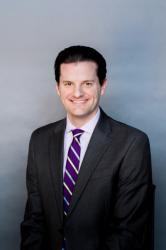Predictions about the future have a checkered past. But Michael Munger’s recent book “Tomorrow 3.0: Transaction Costs and the Sharing Economy,” born out a few of his many appearances on the popular podcast EconTalk, at least makes its prognostications based on current trends and reasoned economic principles. Munger predicts what he dubs the Middleman/Sharing Revolution, in which software and digital tools increasingly lower transaction costs and make it more profitable to share or rent “stuff” than to own it. In the year 2100, people will think it quaint that folks used to own and store so much stuff that they rarely used. He argues that the trend toward the sharing and renting economy has already begun in endeavors like Uber and Airbnb, which connect excess capacity with consumer needs.
Whether Munger is right about all of this, or any of it, time alone will tell. But his book raises some important questions about the nature and future of ownership. In a recent conversation, a friend remarked to me that we live in a rental society and that there is an increasing resistance, especially among younger Americans, to commit to long-term relationships, to home ownership, or to anything. This was the sort of off-the-cuff social commentary that a person says in private and hopes will never appear in a public forum—or on a blog (hence my omission of his name, but he knows who he is). The reality may not be so much that young people are afraid of commitment, or that people prefer renting to owning, but that owning and renting are not that far apart. As Munger notes repeatedly, what people usually want with ownership is not the good itself, but its use and benefit at their discretion. Ownership is one way of securing a good’s use and benefit on demand, but it’s not the only way. In fact ownership, Munger notes, may be just a more enduring kind of renting. We might add that certain forms of ownership and purchase, such as homeownership or the purchase of an expensive undergraduate education, can seem more like long-term—or even interminable—renting.
Munger is optimistic that a rental—or a sharing—economy may not be all bad. In fact this idea may have some resonance with a Christian view of property and ownership, since human beings do not own anything in an absolute sense anyway. We are all stewards and servants of the Creator. Although the old song by Jim Reeves is ridiculed as other-worldly and creation-denying in certain swaths of Christianity, perhaps this world really is not our home. Perhaps we’re just a rentin’ through.
Featured image: Kotivalo [CC BY-SA 4.0]

